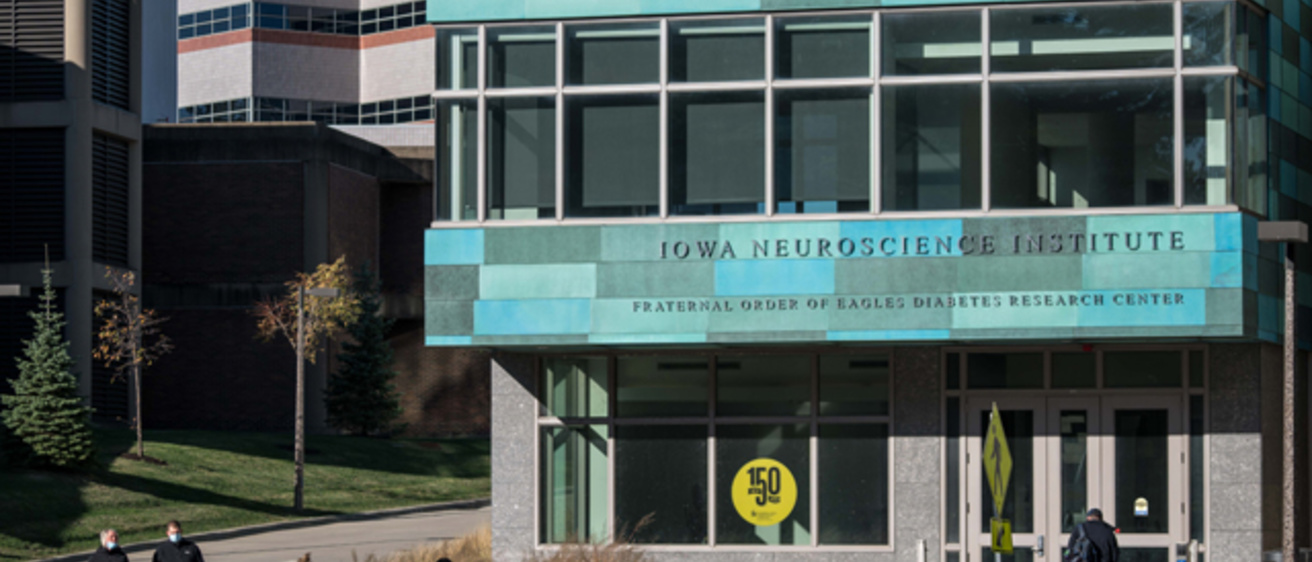By Elianna Novitch
A cross-disciplinary University of Iowa research team is working to create a better understanding and awareness of twice-exceptionality (2e).
Twice-exceptionality is a term that refers to individuals who are both gifted and have a neurodevelopmental disorder, such as autism spectrum disorder, attention-deficit hyperactivity disorder, specific learning disabilities, anxiety, or depression. Although it’s a term that entered the educational lexicon in the mid-70s, it’s only since the start of the 21st Century that the gifted education world has taken on a leadership role in the field.
Together, the UI College of Education’s Belin-Blank Center for Gifted Education Talent Development and the Carver College of Medicine’s Iowa Neuroscience Institute are working to create a full picture and understanding of 2e, from its genetic roots to the best way to help 2e individuals. These steps include:
• Identifying genetic factors that lead to this duality
• Developing potential educational therapies that are grounded in the neurobiology of the condition, to treat the disability while nurturing the strengths that define giftedness
• Accommodating schools and workplaces so that 2e children and adults can soar
“Having this multidisciplinary lens can only enhance what we know,” says Susan Assouline, director of the Belin-Blank Center.
Assouline is among the core group of UI faculty exploring 2e. Other faculty from the College of Education’s Belin-Blank Center on the research team include Megan Foley Nicpon, Alissa Doobay, Duhita Mahatmya, Brandon LeBeau, and Katherine Schabilion.
The Iowa Neuroscience Institute helps bring expertise in exploring 2e from a biological perspective and gaining insight on the genetic features of 2e individuals to the research team. Faculty from the Carver College of Medicine’s Iowa Neuroscience Institute working on the research team include Jacob Michaelson, Ted Abel, and Thomas Nickl-Jockschat.
As part of this effort, the UI team is working with an unprecedented dataset on more than 1,300 gifted individuals and their associated neurodevelopmental conditions and learning disorders. The data includes parent- and self-reported challenges, the results of IQ and achievement tests, and clinical diagnostic assessments, all collected by licensed psychologists through the Belin-Blank Center’s assessment and counseling clinic.
It is the largest and most comprehensive database of 2e individuals in the world.
“The Carver College of Medicine were fascinated by the fact that we had all of these files on individuals, which are just kind of an unprecedented data set with more than a million data points,” Assouline says. “This dataset is as complete as it can be; given that it was collected clinically, it’s really phenomenally comprehensive.”
The Belin-Blank Center is one of the few gifted and talented education centers that also offers a clinical practice, meaning they work with students in real life, not just in theory. That means they can also treat children with 2e.
The UI team’s goal with 2e isn’t just to help children while they’re students, but to create a better understanding and awareness of 2e so that when these children grow up, they can continue to thrive.
Assouline says the first challenge with 2e is that identifying people with the condition is difficult.
“You can’t draw blood and say a person is gifted,” Assouline says.
Assouline says 2e educators and researchers are also fighting a misconception that one exceptionality can’t mean the other exists.
“Sometimes people just don’t believe that a person who’s gifted can have a disorder,” Assouline says. “You can be smart and also have a lot of trouble learning.”
When it comes to recognizing 2e individuals, typically it comes from a parent or gifted education teacher who notices either the giftedness, a possible disability, or both.
At the Belin-Blank Center, clients are given a comprehensive psychoeducational assessment that takes place over a few days. Those tests give insight into how these children process information, their short-term memories, and how they analyze and solve problems.
This approach is far more comprehensive than using only an IQ test, says Assouline, because 2e children can score off the charts in one section due to their giftedness and far below average in another because of their disability. Children also undergo a behavioral assessment to determine their social and emotional development.
Based on these assessments, the Belin-Blank Center will provide a diagnosis and recommendations so that the parent can better advocate for their 2e child in the classroom.
As the UI team continues to research and raise awareness around 2e, Assouline along with others from the team are planning for the first ever Summit on the Neuroscience of Twice-Exceptionality, also known as the 2e Summit, which is scheduled to take place in-person, with a virtual option, May 16-18, 2021.
The goal of the summit is to have a national and international gathering of educators, researchers, and 2e individuals and their families on the UI campus. Over two days, they will have the opportunity to share information about the lives of 2e individuals and the work being done to help the educational and medical communities understand these doubly exceptional people.
“It’s a really unique opportunity to have a variety of perspectives about this important topic guiding us as we move forward with our colleagues from across the country,” Assouline says.
Assouline says the interest and energy around 2e research is palpable and that she’s excited to bring together different stakeholders at the summit.
“There is a craving by parents in particular, to have more information and recognition that twice-exceptionality exists and they use whatever they can learn to help their students do better in school,” Assouline says. “There's something really persuasive about this topic of twice-exceptionality because people can connect with it. They understand, at a fundamental level, that people can have high ability but can also struggle.”
To learn more about the 2e Summit, click here. https://belinblank.education.uiowa.edu/research/summit.aspx
Read more from the Annual Report 2020
